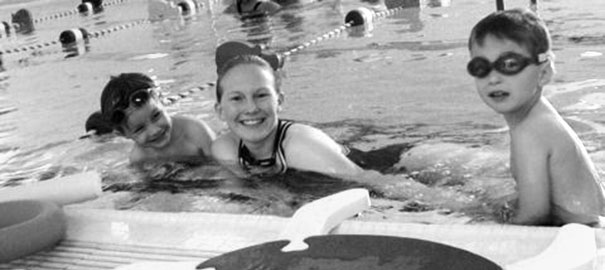
As parents, we love to see our children learn new things and accomplish new skills. It’s part of what we feel makes us a good parent. However, often in our quest, we get caught up in thinking that sooner is better.
It’s important that in swim lessons, as in other areas of learning, that we keep our expectations realistic. Understanding how children learn and what they need is a key factor for positive healthy learning.
Children need the gift of time
Children don’t want to hurry up and learn anything. They learn best when they are discovering, exploring and moving forward at a pace that is within their comfort level. Pushing young children to reach goals before they are ready creates stress and impedes valuable learning.
Children need peaks and valleys
Sometimes there are periods when many skills are gained, followed by times when it appears that no progress is being made at all. And, sometimes skills once mastered, appear to have regressed. The brain and muscles are ‘working’ through information and taking some much needed time to get everything processed. This is a natural part of learning. Children will get the most benefit when adults recognize this and remain confident, calm and positive.
Children need the whole picture
If skill acquisition becomes the only focus, children get short changed. Young children come to swim lessons just as they are. They bring the only social skills, behavioral skills, and cognitive skills that they have, and typically, just like swimming skills, they haven’t got them mastered quite yet. Learning to take turns, follow directions, share, remember the rules, separate from Mommy, and meet new friends are all valuable and often challenging skills in and of themselves. When we are in a hurry to get children to master specific skills, we become skill oriented, and miss the opportunity to develop meaningful growth in many other areas.
As parents and teachers, one of the best things we can do is slow down and give our children the gift of time. Allowing children to learn in a way that is conducive to their developmental readiness instead of a preconceived adult time frame, ensures positive and healthy growth, as well as instills a love for learning. Adults like to “hurry up and learn”, not children. There’s a good reason why children don’t like this; it’s just plain and simple, not how they learn. Children need the gift of time.
Lory Kirk, Head of Curriculum


Conversations